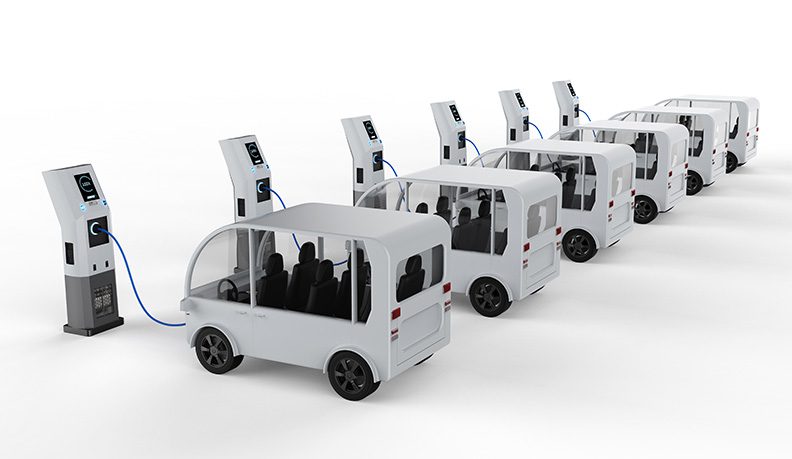As the world becomes more environmentally conscious, the adoption of electric cars has been on the rise. With the Australian government’s recent exemption of electric cars from Fringe Benefits Tax, there is now even more incentive to make the switch.
Good news, owning an electric vehicle just got a whole lot easier! The ATO has made recent changes exempting electric cars from Fringe Benefits Tax, meaning you can save more money for the things you enjoy. This is particularly beneficial if part of your fleet is not used 100% for business purposes.
If you or your business are interested in owning electric vehicles, this article provides a comprehensive guide to the recent changes in leasing cars for businesses and the benefits for employers.
What is a business car lease?
Leasing a car can be a wise decision for businesses that require dependable transportation but cannot afford to purchase a vehicle outright. When an employer leases a car, they enter a contract with a lender in which they borrow the car for a specified period.
The company is then responsible for paying the car’s depreciation, which can save them more money than purchasing the vehicle. Employers are still required to pay for running costs such as fuel, service, and insurance.
At the end of the lease period, the employer has the option to purchase the car at its residual value. Leasing a car can be a cost-effective and flexible alternative for businesses that require dependable transportation without the bother of ownership.
What is Fringe Benefits Tax?
Employers pay the Fringe Benefits Tax on some benefits they provide to their employees, such as company cars, health insurance, and gym memberships. The goal of FBT is to prevent employees from receiving tax-free perks in lieu of compensation.
FBT is determined based on the taxable value of employee benefits, with the employer liable for paying the tax. The FBT rate is currently fixed at 47%, which implies that the employer must pay 47 cents in tax for every dollar of taxable value.
FBT exemption for electric vehicles
Employers may be eligible for an FBT exemption when leasing an EV for employees or their associates for private use. This means the employer can reduce the amount they pay on their car lease as they pay no FBT tax.
From 1 April 2025, private use of a plug-in hybrid EV will no longer be eligible for the exemption, unless the use of the vehicle was already exempt before that date, and the employer has a financially binding commitment to continue providing private use of that vehicle after 1 April 2025.
Charging Stations and Fringe Benefits
Providing an employee with a home charging station is considered a fringe benefit and may be subject to FBT. Therefore, employers need to keep track of all associated expenses and ensure they are included in their FBT calculations.
Salary Sacrifice Arrangements
Businesses can offer novated leases to employees in which the employer, employee, and lender enter an agreement together. The employee can use their pre-tax income to pay for the car lease, reducing their income. Employers are cost-neutral in novated lease agreements.
Benefits of electric cars used in a businesses
Electric cars are becoming an increasingly attractive option for businesses as they offer a range of benefits including:
- Higher Luxury Car Tax (LCT) threshold: Businesses leasing electric vehicles will likely pay less on LCT. The LCT threshold for EVs is $84,916 compared to the regular threshold of $71,849.
This difference in threshold means businesses purchasing electric cars rather than petrol have $13,067 more purchasing power before needing to pay LCT. This can result in businesses saving thousands of dollars on LCT.
- Don’t need to track personal use: If you are leasing an electric car, you are not required to pay Fringe Benefits Tax which means you do not need to keep track of your personal use.
Businesses using petrol cars may be required to track their personal use with logbooks or other methods.
- Reduced fuel costs: Electric cars are much cheaper to operate than petrol or diesel vehicles, as they rely on electricity instead of fossil fuels.
- Reduced maintenance costs: Electric cars have fewer moving parts than traditional vehicles, which means they require less maintenance and are less likely to break down.
- Reduced carbon emissions: Electric cars produce zero emissions, which can help businesses reduce their carbon footprint and meet their sustainability goals.
- Improved employee satisfaction: Offering electric cars as a company vehicle can be a great way to attract and retain talent, as employees are increasingly looking for environmentally friendly workplace benefits.
Electric vehicle lease vs Petrol vehicle lease: Example
The following table shows examples comparing a business leasing 5 electric cars to 5 petrol cars, both on 3-year leases. Each car is approximately $70,000, and each car drives approximately 15,000km per year. The table below also assumes the cars are not being used for personal use.
| Business Car Lease: 100% business use (no personal use) | ||
| Cost of lease per year | ||
| Electric Car Lease | Petrol Car Lease | |
| Lease Term | 36 months | 36 months |
| Monthly Repayments | $1,400 | $1,400 |
| Yearly | $16,800 | $16,800 |
| Running Costs per year | ||
| Cost per km (fuel/recharging) | $0.03 | $0.12 |
| Cost of 15,000km (annual) | $450 | $1,800 |
| Scheduled Service | $110 | $200 |
| Registration (annual) | $600 | $600 |
| Insurance (annual) | $1,500 | $1,200 |
| Roadside Assistance (annual) | $200 | $200 |
| Cost of tyres (annual) | $350 | $350 |
| Total Yearly | $3,210 | $4,350 |
| Total cost for the business | ||
| Total Yearly Cost | $20,010 | $21,150 |
| Total Cost over Lease Term | $60,030 | $63,450 |
| 5 Vehicles Yearly | $100,050 | $105,750 |
| 5 Vehicles Total | $300,150 | $317,250 |
| Total savings switching to electric | $17,100 |
Over the period of a 3-year lease, a company using petrol cars would spend a total of $317,250. A company using electric cars would spend $300,150. That is a total saving of $17,100 for a business switching to electric cars.
If you are using your company cars for 50% business use and 50% personal use, you may be subject to Fringe Benefits Tax. As electric cars are exempt from paying FBT, your business can save more money. Using the previous cost of lease and running cost calculations, we arrive at the following figures:
| Business Car Lease: 50% business use (50% personal use) | ||
| Total cost for the business | ||
| Total Yearly Cost (Before Tax) | $20,010 | $21,150 |
| FBT Tax | $0 | $4,970 |
| Total Yearly Cost (After Tax) | $20,010 | $26,120 |
| Total Cost over Lease Term | $60,030 | $78,361 |
| 5 Vehicles Yearly | $100,050 | $105,750 |
| 5 Vehicles Total | $300,150 | $391,804 |
| Total savings switching to electric | $91,654 |
After 3 years, a company that uses petrol cars for 50% of business use would pay $391,804. Conversely, a company using electric cars for 50% of business use would pay $300,150 as they pay no additional tax. That is a total saving of $91,654 for a business switching to electric cars.
It is important to note that the given example relies on multiple assumptions, and your actual situation may differ from the information provided above. This variation can occur due to factors such as the car’s cost, the distance travelled in kilometres and other tax deductions that may be available to you.
One Click Life Tax can help you!
Working with an online tax agent is the easiest way to claim the most out of your Fringe Benefits Tax. If you can claim your online tax return fee while maximising your tax deduction, why wouldn’t you use one?
One Click Life is an easy-to-use platform run by local professionals that offer online tax returns at your fingertips.
Taxes, Mortgages, Wills, and Health insurance. Our app gives you a hassle-free way to organise, track and manage all your life admin in a single place. You can spend more time doing the things you love by letting One Click Life handle your Tax Return, Mortgage, Health Insurance, and Will.


